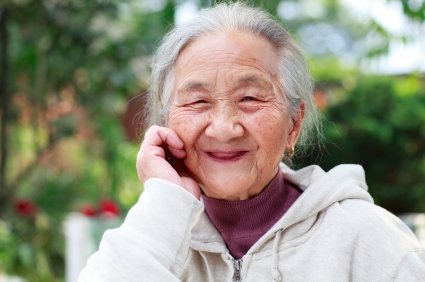May 10, 2010

Back in 1963, when 17 million Americans aged 65 and older represented just 9 percent of the population, President John F. Kennedy designated May as Senior Citizens Month. Today there are almost 40 million Americans aged 65 and older, a number that is projected to increase to 88.5 million by 2050. By then they will make up 20 percent of the total population, and nearly 1 in 4 will be over 85. (By comparison, in 1900 only 4 percent of women and 3 percent of men lived to be 90.)
We now know that they hate being called “senior citizens.” (President Carter changed the name to Older Americans Month in 1980.) Their numbers are swelling. What else do we know about older Americans? Increasingly, older Americans are preparing for the final stages of their lives and contacting someone like a Rochester Hills Estate Planning Attorney to help organize their estate ahead of time to ensure their wishes will be abided when they are gone. Here are some surprising facts from researchers at the Council on Contemporary Families:
Americans over 65 are living not just longer but better.
Disability rates continue to decline. More than half of the “oldest old” (eighty-five and older) report no significant physical disability whatsoever and need no help with everyday activities.
More are working, by choice or by necessity.
Sixteen percent, or 6.2 million, were in the labor force in 2008, a number projected to increase to 10.1 million by 2016.
A full 70 percent of working adults between ages 45 and 74 plan to work during retirement or never retire at all.
Widespread age discrimination in the workplace persists, despite the excellent performance of older workers and projected “seasoned talent” shortages.
They’re more independent than you think.
In 2008, 68 percent lived in households with relatives. Twenty-seven percent lived alone, 5 percent lived in group quarters, and 2 percent with people they weren’t related to.
Only 4 percent of people 65 and older lived in nursing/skilled nursing facilities in 2008.
Fifty percent of those 1.6 million people in nursing facilities have Alzheimer’s, the most common form of dementia. Current estimates are that no more than ten percent of all elderly people (aged 65 to 100 or more) are Alzheimer’s patients.
They’re less lonely than often assumed.
In 2009, 56 percent were married (as opposed to widowed or divorced without remarriage). In fact, unlike the past, elders are now more likely to be currently married than any other age group, because both men and women are living longer and because the mortality gap between sexes is narrowing. In addition, older people who have been divorced or widowed are more likely to remarry than in the past — although unmarried elders are also much more likely to cohabit today than formerly.
Sex is important to their quality of life – especially for Hispanics.
A new AARP Sex Survey released this month shows this is true for most people in their 50s and 60s – and also for people in their 70s if they have a partner. Hispanics were the most likely to say that sex is important to them – more than 80 percent of Hispanic people, at all age levels, said sex was important.
They’re much less likely to be poor than in the past.
This is largely thanks to Social Security programs. However, the income of almost a quarter of the over-65 population is less than $39/day. Women are many times more likely to be poor because they earn less, they’re penalized for time out of the labor force, and because Social Security was designed for single-breadwinner, married couples. Single women of color over 65 are the poorest of the poor.
Their grandchildren want to help.
A recent Pew research poll found that 60 percent of young people aged 18-34 (compared to just 40 percent of 60+ adults) say that families have the responsibility to take in an elderly parent if the parent wishes to move in. But most young people cannot afford to support their aging parents or grandparents without assistance from programs such as Social Security, which are critical in maintaining the gains that elders have made over the past half century.
For Further Information
On historical changes in the experience, social status, and family lives of the elderly: Stephanie Coontz, Professor of History and Family Studies, The Evergreen State College; coontzs@msn.com; 360 556-9223.
The effect of the longevity boom on the role of grandparents: Joshua Coleman, psychologist, author, and Co-Chair of CCF; drjoshuacoleman@comcast.net, 510 547-6500.
Sexuality among older Americans: Pepper Schwartz, Professor of Sociology, University of Washington, CCF Board Member, and AARP’s sex and relationship expert; couples@u.washington.edu; 206 543-4036.
The oldest old in the workforce, ageism in American culture: Ashton Applewhite, author and CCF Board Member; http://www.stayingvertical.com; 646-644-4040.
On older adults and their families preparing for the end-of-life; aging mothers and daughters relationships; and factors that help older widows and widowers adjust successfully to the loss of a spouse: Deborah Carr, Professor of Sociology, Rutgers University; carrds@sociology.rutgers.edu; 732-932-4068.
On intergenerational relationships between older Americans and adult children: Ruth Nemzoff, Resident Scholar, Brandeis Women’s Studies Research Center; rnemzoff@brandeis.edu; 617-879-1959.
About CCF
The Council on Contemporary Families is a non-profit, non-partisan organization of family researchers and practitioners dedicated to providing the press and public with the latest research and best-practice findings about American families. Founded in 1996 and based at the University of Miami, the Council’s mission is to enhance the national conversation about how and why contemporary families are changing, what needs and challenges they face, and how these needs can best be met.
To receive regular briefing papers from the Council, or a complimentary press pass to CCF conferences, contact CCF’s Director of Research and Public Education, Stephanie Coontz, at coontzs@msn.com.
Media Contact: Virginia Rutter/Framingham State College Sociology; vrutter@gmail.com; 508 626 4863
